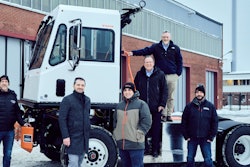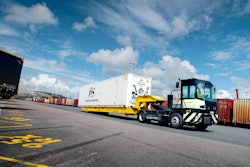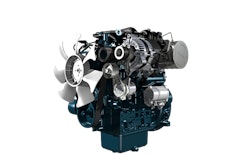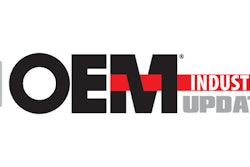
Each year, our State of the Industry issue looks at the top trends and technologies within the heavy equipment industries. We also dig into current and future market conditions, as well as regulations which may currently or in the coming years have an impact on how the industry will go about designing its equipment.
To get the best insights, we speak with executives from a variety of companies working in the industry—everyone from associations, to OEMs to component suppliers. Below are responses provided by Martin Bjuve, President, Volvo Penta of the Americas.
Read all of this year's executive Q&As.
Diesel, Electric & Other Power Alternatives
How, if at all, do you see the role of diesel engines evolving in the coming years?
Diesel engines will continue to maintain a significant presence for a considerable time as we look ahead, both in conventional and hybrid applications. However, we believe that over time, the usage of the technology will become more application-based and will run in parallel with the emergence of more zero-emission solutions. A blend of traditional, hybrid and fully-electric solutions will be necessary to usher in the full shift to climate neutrality.
The industry can expect to see continued improvements when it comes to efficiency of today’s diesel technology. Take for example Tier 4 Final systems, which offer a combination of high power, low fuel consumption and low emissions that was unthinkable just a short time ago. In comparison to previous emissions standards, Tier 4 compliant engines reduce emissions by more than 95% in some off-road applications. Volvo Penta is firmly committed to reducing emissions through both existing and emerging technologies.
How will electrification—or other alternative energy/power systems—continue to advance in the heavy equipment industry?
While fully electric solutions like terminal tractors are already on the market, it’s important to remember that they are a first- or second-generation product. When it comes to transformation, OEMs are recognizing the value in turning to an established manufacturing partner who will continuously invest in development, and understand the critical elements of safety, reliability and aftermarket support.
Our focus in this area is not only related to technology development, but the integration and operation of these new solutions as well. Our recently announced collaboration with TICO is a good example of this strategy in practice. Earlier this year, we shared plans to jointly introduce an emission-free, electric terminal tractor. This collaboration allows us to not only take a full system approach when providing a reliable electric driveline, but also offer deep technical expertise throughout the entire design and development stages. This end-to-end partnership will be the cornerstone of our expansion into electromobility within the U.S. market.
Challenges & Opportunities
What are the biggest challenges facing the industry currently, or do you see the industry facing in the coming years?
To start on a positive note, nearly every segment we service, from off-road applications to power generation, is experiencing very strong demand globally. But that growth is being challenged by the turbulent supply chain.
The main bottleneck right now is access to components, including semiconductors. We find that transparency and close communication is best for weathering these challenging dynamics. Tapping into bigger and broader networks – as we’ve done being a part of the larger Volvo Group – has proven to be beneficial in identifying resources with suppliers and to help maintain production.
What are some of the biggest opportunities you see in the industry?
Despite supply chain challenges, there remains a lot of revenue opportunity in the industry. We’re seeing an uptick in orders and deliveries across a variety of segments – including materials handling, construction, power generation and others. We expect market demand to remain steady over the next year barring any major changes.
We strongly believe that the focus around climate change will intensify, and that the demand for more sustainable solutions will accelerate. There is opportunity ahead for corporations who take stronger action in their sustainability commitments and deliver on growing demands for more environmentally-sound applications and operations. New electric and hybrid technologies continue to enter the marketplace, while availability of loans and incentives for sustainable solution investments also increases.
What do you think will be the biggest change to occur in the heavy-duty vehicle and equipment industries in the next decade?
Certainly the shift toward electromobility, with major players making firm commitments to net-zero emissions in the coming years. That’s why we express urgency with our partners in starting the transition now – it’s not something to put on the backburner. It is important to note though that pace of transformation toward electrification will differ from segment to segment. Infrastructure remains one of the factors impacting adoption and it’s critical that we come together as an industry to find resolutions to this challenge.
As development continues, we’ll keep learning and benefiting from the progress our Volvo Group sister companies are making in electromobility, including key projects right here in the U.S. In addition to our TICO collaboration, for example, Volvo Group is involved in the Volvo LIGHTS project which brings together both public and private stakeholders to design an end-to-end support system for the wide-scale electrification of commercial trucking. The innovations that are produced from this project will have a big impact on the commercial success of industrial battery technology. Another key milestone of progress is the recent order for 16 Volvo VNR Electric Class 8 trucks by Performance Team – A Maersk Company, making it the largest commercial order of the North American zero-tailpipe emission model to date. Both of these are strong proof points of Volvo Group’s transformation toward net-zero greenhouse emissions.



















